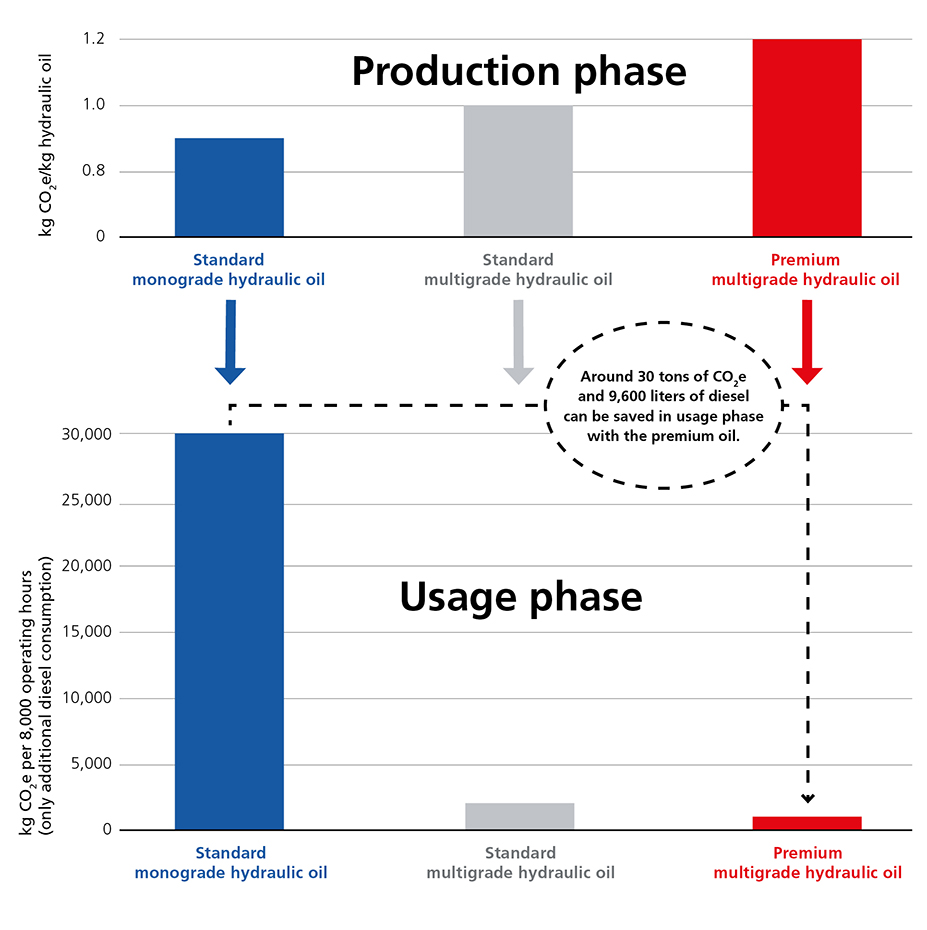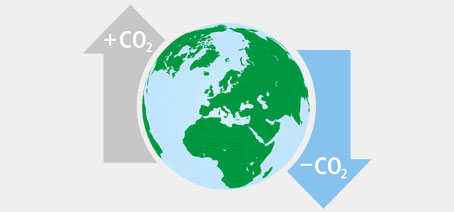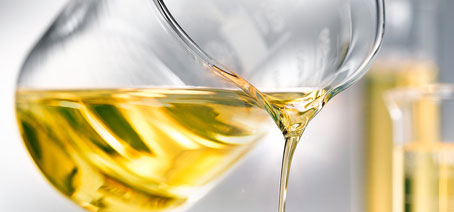What makes a product sustainable?
By now most people understand the importance of sustainability, and the fact that the products we produce and use have the lowest possible impact on our climate and environment. But what is it that determines how sustainable a product is? In the lubricant industry, there is currently no standard for classification of a sustainable product, but here at FUCHS we would like to change that.
When conducting an environmental assessment of a product, it is easy to look only at the production stage, but the issue is actually far more complex than that – as we ourselves have clearly seen when analysing our own operations. One example is the environmental efficiency analysis we conducted on the entire life cycle of three of what are currently the most common hydraulic fluids. The results show that the answer can be quite different to what might be expected…
The three tested hydraulic fluids – Standard Monograde, Standard Multigrade and Premium Multigrade – were all based on mineral oil. After being used for 8,000 hours in a crawler excavator, they were carefully studied.
DIFFERENT RESULTS WITH DIFFERENT PERSPECTIVES
When talking about a product’s sustainability, it is far from just the carbon dioxide emissions that count. There are of course various aspects involved, but if we look at the climate impact of the different products, we see something interesting. The results differ widely depending on if we are looking at the production phase or the usage phase.

In the production phase Standard Monograde has by far the lowest carbon dioxide emissions, since it has a simpler production process where the actual manufacture has barely any emissions. By comparison, production of the more complex and high-quality Premium Multigrade hydraulic fluid uses far more energy. But what happens when we put the excavator to work? The results are reversed.
ENVIRONMENTAL AND FINANCIAL GAINS
So the least sustainable hydraulic fluid in the production phase turned out to be by far the most sustainable one overall. In the usage phase, the high-quality (Premium Multigrade) hydraulic fluids provide both lower friction and higher pump efficiency (compared to a Standard Monograde product), which in turn reduces fuel consumption and increases the life of both the hydraulic fluid and the machines.
The results reveal that the high-quality hydraulic fluid saves about 9,600 litres of diesel during a usage phase of 8,000 hours. This not only equates to a CO2 equivalent of around 30 tonnes, but also means a diesel saving of about €12 000! Meanwhile, the improved life span showed that consumption of hydraulic fluid also decreased significantly during the 8,000 hours of operation, from 1,600 litres (Standard Monograde) to 400 litres (Premium Multigrade), and that the maintenance interval could be extended.
These are figures that speak for themselves, both financially and environmentally. Quite simply, there could be much to gain from finding out which solution is most sustainable for you. You can find a more detailed description of the environmental efficiency analysis in this article.
A NEW PERSPECTIVE
The results of this study should get a lot of people in the industry to start thinking differently. The fact that a product can be better for the environment overall, even though it means more carbon dioxide emissions in production, is a deviation from the usual way of thinking.
We hope and trust that our studies might prompt new perspectives on the various aspects that should be considered when assessing a product’s sustainability. Our ambition is to set a new EU standard and achieve a new way of thinking throughout the industry.
If you would like to find out more about our sustainability work, please see our blog post Aiming for sustainability.
You can find general advice and recommendations for more sustainable lubricant use here, and if you have any questions or comments, please don’t hesitate to contact us.

This might also interest you?
Climate compensation – buying our innocence?
Climate compensating as a way of reducing environmental impact is nothing new, and most of us have come across the issue in one way or another. Recently, however, questions have started to be asked about how well the method actually works. Is it just a way of buying innocence?
Choose the right viscosity – save energy, money and the environment
In my job, I visit a great many industrial companies every year, in different sectors. One thing I’ve noticed is that most of them still use older types of lubricant of unnecessarily high viscosity. Few seem to know that the right viscosity is the simplest key to greater energy efficiency. Do you know what viscosity you have in your machines?
All blog posts
Subscribe
Available in Swedish only.
Smart Lubrication
Smart Lubrication is a blog from FUCHS where we share our common knowledge about lubricants and lubrication.


